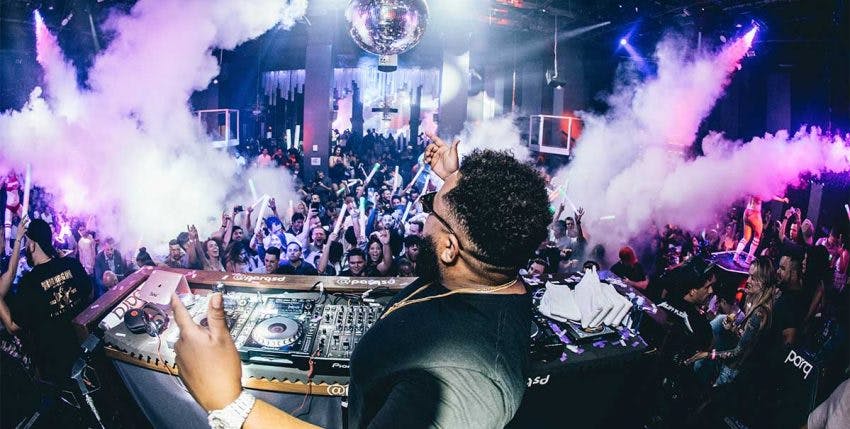



The 1990s saw club culture rise with house, trance, techno and electronica being the music of choice. Furthermore, the clubs were not just for music; it was a lifestyle. Move forward, twenty years, and the clubbing industry has changed dramatically, but how has the clubbing industry changed since the 1990s?
For many people, nightclubs invoke many strong memories. It was a place where people solidified friendships, made new friends and even fell in love. For other nightclubs were the first place to try alcohol or experience a completely different style of music that wasn’t accessible on mainstream radio. For these people, who experienced the pinnacle of club culture in the 1990s, it may be startling the realise that there is a decline in the number of nightclubs.
In just ten years, the number of nightclubs has been slashed in half. In 2005 there were 3,144 nightclubs, by 2015 there were just 1,733. So why has the number dropped so dramatically?
In the past nightclubs were the only place open after the pubs closed making the transition to a nightclub a no-brainer for those not willing to end the night. However, licensing laws changed, allowing bars and pubs to open late and have music which has taken some people away from club culture.
Club culture has a focus on students. In fact, most clubs offer a student night. However, the rising cost of living, combined with tuition fees mean that students cannot afford to go out as much as they used to. Furthermore, social media and the rise of digital technology has opened up a wealth of other entertainment options.
Despite the number of live music venues also declining, there is a renewed interest in watching live music. In this case, live music venues can diversify, offering a club night after concerts while not strictly being a nightclub. This may mean that nightclubs are not necessary in decline, but there is a diversification on the labelling of venues.
As the clubbing industry evolved, it enabled people to enjoy the nightclub experience from a new perspective. Instead of frequenting the same nightclub in town week after week, club-goers can now head to club locations such as Ibiza and experience clubbing in a completely different way. For some, a summer of clubbing and festivals may be a better experience than a weekly trip to the same nightclub.
Sadly, nightclubs can get a bad reputation when criminals use nightclubs to their advantage. Thefts and fights can grab media attention, in turn, nightclubs get penalised. Nightclubs have to employ more security and purchase more security systems to ensure their customers stay safe. This can also have an effect on licensing laws, which can then impose restrictions on club operations which means nightclubs can lose out financially.
While the number of traditional nightclubs may be closing, there is now potential for small-scale nightclubs to make their impact on the night-time economy. While traditional clubbing from the 1990s is less attractive, people are still interested in live music and fresh ideas in the night-time economy.
Clubs now have the chance to explore and promote creative arts, from audiovisual shows, dancers, artists and designers. Nightclubs have the venue and the capacity to explore unique sub-cultures that set their nightclub apart and make a nightclub experience fresh, exciting and wholly different.
While mega-clubs may be in decline, small clubs have the opportunity to diversify and offer a carefully curated selection of events and a weekly schedule that meets the needs of sub-cultures rather than trying to please the whole of club culture.
Furthermore, 43% of people would rather go to bars with a dancing area rather than a nightclub. It may be time to revolutionise the clubbing industry and tailor for the cultural shift and promote a late-night bar rather than a nightclub.
What is important is that for nightclubs to remain successful, they need to keep their fingers on the pulse in terms of the changing consumer preferences. Whatever is the latest trends, nightclubs need to make sure they capitalise. Habits and trends change quickly, and diversification is the key.